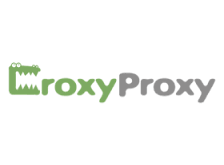In the rapidly evolving landscape of industries such as pharmaceuticals, biotechnology, microelectronics, and aerospace, maintaining stringent environmental controls is paramount. Cleanrooms, specialized environments designed to minimize contamination, have traditionally been built using conventional construction methods. However, the emergence of modular cleanroom solutions is revolutionizing the way these controlled environments are designed, constructed, and maintained. Modular cleanrooms offer unparalleled flexibility, efficiency, and cost-effectiveness, making them a game-changer for industries that rely on pristine environments.
Understanding Modular Cleanroom Solutions
Modular cleanrooms are prefabricated, self-contained units that can be assembled, disassembled, and reconfigured with relative ease. Unlike traditional cleanrooms, which are constructed on-site, modular cleanrooms are built using pre-manufactured panels and components that can be quickly assembled to create a controlled environment. These components often include wall panels, ceilings, floors, and HVAC systems, all designed to meet specific cleanroom standards.
The modular approach to cleanroom construction offers several key advantages:
1. Flexibility and Scalability
One of the most significant benefits of modular cleanrooms is their flexibility. They can be easily expanded, reduced, or reconfigured to meet changing needs. This is particularly valuable for industries that experience rapid growth or need to adapt to new processes or technologies. For instance, a pharmaceutical company can start with a small cleanroom and gradually expand it as production scales up, without the need for extensive downtime or costly renovations.
2. Speed of Deployment
Traditional cleanroom construction can be time-consuming, often taking several months to complete. Modular cleanrooms, on the other hand, can be assembled in a fraction of the time. Since the components are pre-manufactured, the on-site assembly process is significantly faster, allowing companies to bring their operations online more quickly. This is especially crucial for industries with tight timelines, such as those developing life-saving drugs or cutting-edge technologies.
3. Cost-Effectiveness
Building a traditional cleanroom involves substantial upfront costs, including materials, labour, and potential downtime during construction. Modular cleanrooms can reduce these costs by streamlining the construction process. The use of standardized components and efficient assembly techniques lowers labour costs and minimizes disruptions to ongoing operations. Additionally, modular cleanrooms can be relocated or repurposed, providing long-term value and cost savings.
4. Consistent Quality and Performance
Modular cleanrooms are manufactured in controlled environments, ensuring consistent quality and adherence to stringent standards. This consistency translates to reliable performance, with cleanrooms meeting or exceeding industry regulations. The modular components are designed to fit together seamlessly, reducing the risk of contamination and ensuring optimal environmental control.
5. Sustainability and Reduced Waste
The modular construction process generates less waste compared to traditional methods. Since components are manufactured to precise specifications, there is minimal material waste during assembly. Furthermore, the ability to reconfigure or relocate modular cleanrooms extends their lifespan and reduces the need for new construction, contributing to sustainability goals.
Applications Across Industries
The versatility of modular cleanroom solutions makes them ideal for a wide range of applications across various industries. Here are some examples of how different sectors are leveraging modular cleanrooms:
1. Pharmaceuticals and Biotechnology
In the pharmaceutical and biotech industries, maintaining a sterile environment is crucial for drug manufacturing and research. Modular cleanrooms provide the necessary control over air quality, temperature, humidity, and particle contamination. They are used for activities such as formulation, filling, packaging, and quality control. The ability to quickly set up and validate these cleanrooms is vital for companies bringing new drugs to market.
2. Microelectronics and Semiconductors
The production of microelectronics and semiconductors requires extremely low levels of particulate contamination. Modular cleanrooms offer the precision and control needed for these manufacturing processes. Their scalability allows companies to adjust cleanroom size based on production volume, ensuring cost-efficiency while maintaining high standards of cleanliness.
3. Aerospace
Aerospace manufacturing involves working with highly sensitive components that must be protected from contamination. Modular cleanrooms provide the controlled environment needed for assembling and testing spacecraft, satellites, and other aerospace equipment. The ability to reconfigure cleanrooms for different projects enhances operational flexibility.
4. Healthcare
In healthcare settings, modular cleanrooms are used for applications such as sterile compounding pharmacies, surgical suites, and isolation rooms. These cleanrooms help prevent infections and ensure patient safety. The modular design allows healthcare facilities to quickly adapt to changing needs, such as during public health emergencies.
5. Food and Beverage
The food and beverage industry also benefits from modular cleanroom solutions, particularly in the production of high-purity ingredients and packaging of sensitive products. These cleanrooms help maintain hygiene standards and prevent contamination, ensuring product safety and quality.
Innovative Features of Modular Cleanrooms
Modern modular cleanroom solutions are equipped with a range of innovative features that enhance their functionality and performance. Some of these features include:
1. Advanced HVAC Systems
Modular cleanrooms are equipped with state-of-the-art HVAC systems that control air quality, temperature, and humidity. These systems include HEPA filters and laminar airflow designs to maintain a particle-free environment.
2. Customizable Design
Modular cleanrooms can be tailored to specific requirements, with customizable wall panels, flooring options, and ceiling configurations. This allows for the creation of cleanrooms that meet unique operational needs and regulatory standards.
3. Integrated Technology
Many modular cleanrooms incorporate advanced technology such as real-time monitoring systems, automated controls, and data logging. These technologies enhance the ability to maintain and verify cleanroom conditions, ensuring compliance and traceability.
4. Modular Furniture and Equipment
In addition to the cleanroom structure, modular solutions can include prefabricated furniture and equipment. This ensures that all components work seamlessly together and meet cleanroom standards.
Future Trends in Modular Cleanroom Solutions
As industries continue to evolve, modular cleanroom solutions are expected to advance further, driven by emerging technologies and changing market demands. Some future trends include:
1. Integration with Industry 4.0
The integration of modular cleanrooms with Industry 4.0 technologies, such as the Internet of Things (IoT), artificial intelligence (AI), and robotics, will enhance automation and efficiency. Smart cleanrooms will be able to monitor and adjust conditions in real-time, reducing human intervention and improving precision.
2. Sustainable Design
The focus on sustainability will drive the development of eco-friendly modular cleanroom solutions. This includes the use of renewable materials, energy-efficient systems, and designs that minimize environmental impact.
3. Enhanced Mobility
The demand for portable and rapidly deployable cleanrooms will increase, particularly in response to global health emergencies or the need for field-based research and manufacturing. Mobile cleanroom units that can be transported and set up quickly will become more prevalent.
4. Customization and Personalization
The trend towards customization will continue, with modular cleanrooms offering even greater flexibility in design and configuration. Companies will be able to create highly specialized environments tailored to their specific needs.
Read Also: The Ultimate Guide to Buying a Road Grader for Sale in Qatar
Conclusion
Modular cleanroom solutions represent a transformative approach to creating controlled environments in various industries. Their flexibility, speed of deployment, cost-effectiveness, and consistent quality make them an attractive alternative to traditional cleanroom construction. As technology advances and industries continue to evolve, modular cleanrooms will play a crucial role in meeting the stringent requirements of modern manufacturing and research. By embracing these innovative solutions, companies can enhance their operational efficiency, maintain high standards of cleanliness, and stay ahead in a competitive market.
 Daily Blogger News Stay updated with the latest trends and insights. Your reliable source for daily updates and information.
Daily Blogger News Stay updated with the latest trends and insights. Your reliable source for daily updates and information.






